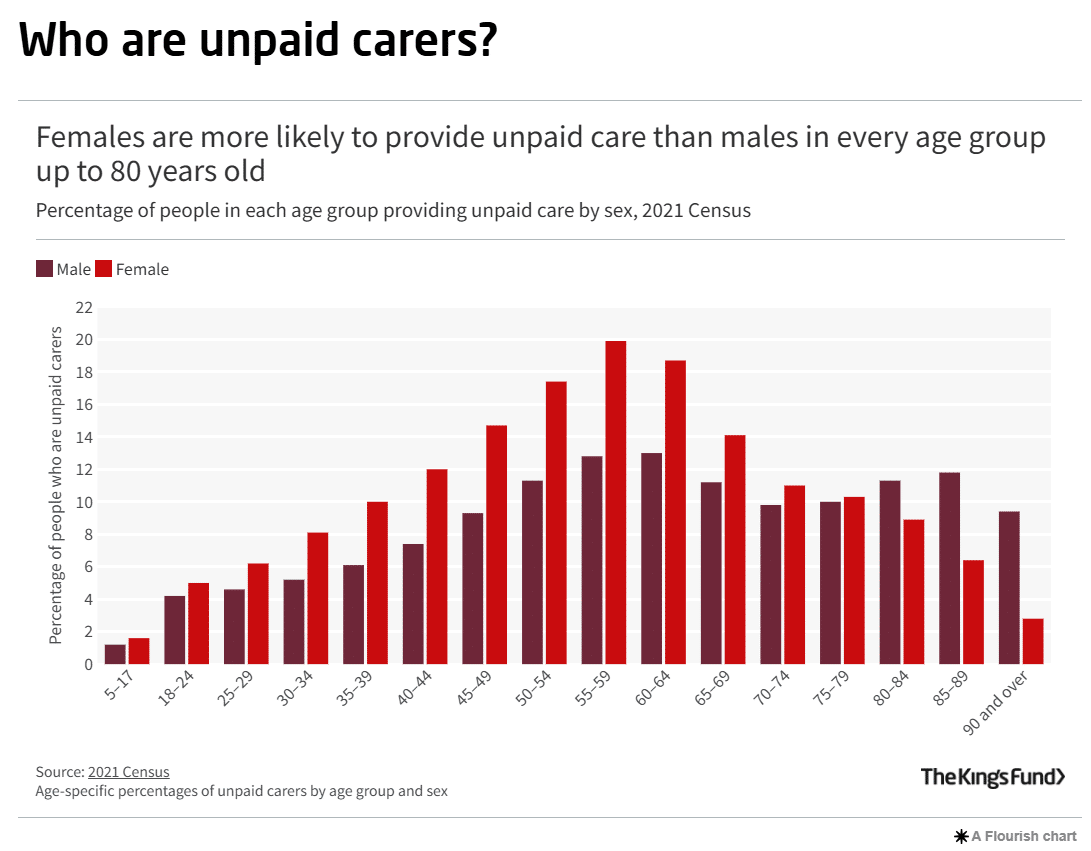Community Nurses: Support Unpaid Carers To Recognise Their Rights
20 November 2024 | Fiona Rogers
As Carers Champion at the QNI, I am supporting and encouraging all nurses working in the community to support Carers Rights Day, an annual national day that shines a light on unpaid carers of all ages and raises awareness of the help and support they are entitled to.
Being an unpaid carer can be rewarding and fulfilling but can also take its toll on health and wellbeing and have a personal and financial impact, including affecting the ability to access and remain in paid work. Children and young people with caring responsibilities have lower educational attendance and attainment than their peers, are less likely to achieve a university degree, and are less likely to be employed, whilst also dealing with increased mental health and financial issues.
Census data from 2021 found 4.7 million people were providing unpaid care in England equating to 8.9% of the total population over the age of 5. The theme for Carers Rights Day theme this year is ‘Recognising Your Rights’. This theme aims to not only helps carers to understand the rights they have but also provide an opportunity for professionals to ask themselves: Do I know who are unpaid carers, including young carers? Do I know what support they are entitled to? and if not, where can I find out? As nurses, we should be curious about the patients and service users in the communities we serve but also aware of the 3.7 million working carers who may well be our friends, family and colleagues.
Unpaid carers – anyone who provides care, unpaid, for a friend or family member who due to illness, disability, a mental health problem or an addiction and cannot cope without their support – play a key role in the health and care system – King’s Fund (2024)
Below is a chart from this King’s Fund report which highlights some interesting data on Unpaid Carers including who they are and how often they provide care.

What can community nurses do to support unpaid carers recognise their rights?
Community nurses work across the whole life course, in all community settings and are in a unique position to identify, support and signpost unpaid carers including young carers to the support they are entitled to.
Here are some tips from the experts!

One action they could do is to refresh themselves on carers rights if they aren’t confident already. If they are confident, they could provide carers with details of these rights, whether that’s a leaflet, a website with this information or just verbally informing carers about them. In many cases, they may be the first professional who is made aware of the caring role, and so need to be confident in their knowledge of rights and have the resources available for them if needed. If they haven’t got the information or resources, the carers they work with are also highly unlikely to.
Carers have many rights relating to different aspects of their life e.g work, hospital discharge, support (including assessment), and protection from discrimination. Details can be found about these rights on a wide range of websites including both national and local charities and organisations who support unpaid carers of all ages.
Tom Smith – Unpaid Carer Expert by Experience

To empower carers we need empowered staff. Ensure they have a really good understanding of what carers rights are and make sure they have the skills and knowledge to bring these into everyday practice.
Debbie Hustings – Triangle of Care Programme Lead

I would say that if you are a young carer you need to know that you are entitled to a free assessment to check that the level of caring you are giving is appropriate and something you want to do. It can also help to find out what support you might need. Then show them this website.
Andrea Spratling QN – School Nurse Practice Assessor

One thing community nurses can do to recognise unpaid carers rights is by speaking with the unpaid carers and signposting to places to support the unpaid carers.
Sara – Young Adult Carer Expert by Experience

Community nurses can support unpaid carers/young carers by being curious and asking questions around caring responsibilities as part of making every contact count. This raises awareness of identifying carers and normalises conversations about caring responsibilities. Unpaid carers or young carers can then be signposted to support organisations.
Amanda Jackson QN – 0-19 PHINS Clinical Team Manager

Think about how they can identify unpaid carers as early as possible and remember – just because the person they are caring for appears to be doing OK, it doesn’t mean the carer is.
Andy McGowan – Policy & Practice Manager, Carers Trust
Here are some suggested resources:
- Unpaid carer’s leave – GOV.UK
- What are your rights as a carer? – Carers UK
- A guide to carers rights for unpaid carers – Care For The Carers
- Support and benefits for carers – Social care and support guide – NHS
You can also contact your local Carers Support that may be provided by a charity or Local Authority and many of these can be found using a handy postcode checker:
- Help For Carers | Comprehensive Support from Carers Trust
- Advice and support for young carers | The Children’s Society
The QNI continues its commitment to supporting community nurses and unpaid carers of all ages and has updated and relaunched its Supporting Carers webpage. If I can recommend one action you take this Carers Rights Day – take a look at the new page and share the link!
Fiona Rogers is the Nursing Programmes Manager (Innovation) and Carers Champion at the Queen’s Nursing Institute.

 Back to Blog
Back to Blog